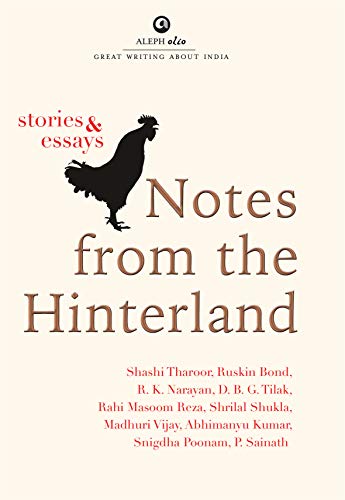Notes from the Hinterland belongs to the Olio series of Aleph Books. It a miscellany of fictional and non-fictional texts, including short stories, extracts, reportage and opinion pieces. The collection aims at projecting the multiple hues of life in small towns and villages. Narrated from a humanistic point of view, the selections hold pointers towards development of societies in states of transformation and/or present the problematic of societies in transition. Rusticity, urbane values and value systems are at the root of some of the selections. While issues and questions regarding religion, caste, superstition, profession, and most recently, the politics of hate, rule from the forefront, change through every passing day—for better or worse—emerges as the most sustaining order in a multicultural country. Some of the essays, by virtue of their subject and the opinions they project, hold pointers at the shape of the future, of a people and of a country. They pose pertinent questions regarding binaries such as peace and anarchy, religion, class and caste bigotry versus a society based on ordinary, humanistic principles.
The twin foci in Mamang Dai’s quote from ‘Small Towns and the River’, at the beginning of the text are death and the lethargy that dominate small towns—these two ideas are seen at play throughout the text—as subject of the essays and also by means of the inner, black flaps inside the book and the black pages with which each selection begins.
Notes… opens with a sensitive extract from Shashi Tharoor’s India: From Midnight to the Millennium and Beyond (1997). Centring the grip of caste and community in southern India, a grip that holds the rest of the country also, it narrates about positions of power and entitlement, taken for granted, and their toppling, in the wake of governmental policies promising reservation and equality of educational and employment opportunity, and favouring lapse of land to the farmer. The extract foregrounds the smugness of feudal societies and their resistance to change, as against an untouchable’s rise to position of power. As urbane values contrast with moribund stereotypes, the urban-rural divide is humorously and perceptively depicted and education emerges as the greatest leveller—in fact, the game-changer.

